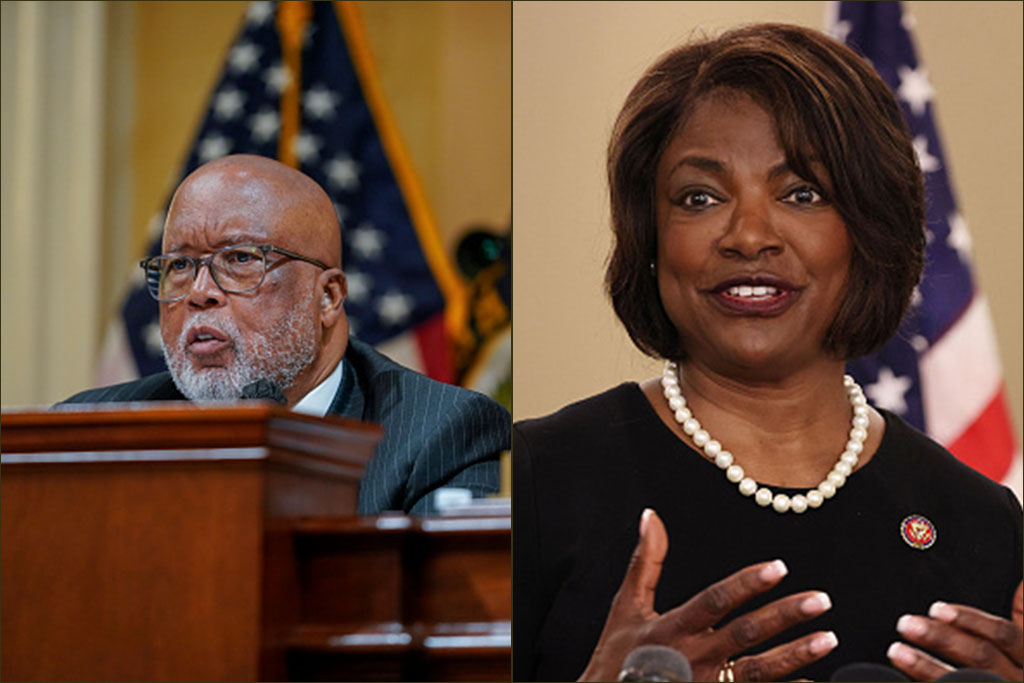Black-Owned Businesses Get $100M PPP Loan As Government Funding Fails
Magic Johnson Secures $100M For Minority-Owned Companies As Government Fails Black And Latino Small Business Owners
One of the greatest passers in basketball history has thrown his latest assist to Black and brown small business owners who have seemingly been excluded from the government’s apparently selective efforts to keep employees on companies’ payrolls during the coronavirus pandemic.
NBA legend Earvin “Magic” Johnson called on one of his companies to help announce more than $100 million in loans “specifically for minority and women-owned businesses in underserved communities,” according to a press release. EquiTrust, the nation’s largest minority-owned insurance company that Johnson is the majority owner of, teamed up with MBE Capital Partners — the largest certified minority-owned asset-based lender — and the National Action Network to award the funds to companies whose applications for the Small Business Administration’s (SBA) Paycheck Protection Program (PPP) were not accepted.
The generous announcement came as the results of a PPP-related survey showed that the SBA has “failed” Black and Hispanic small-business and non-profit owners. Only about 1 in 10 Black and Hispanic small-business and non-profit owners were approved for PPP loans to help pay for payroll, mortgage, and rent. That harsh truth was compounded by the very real fact that Black and brown people are being disproportionately affected by COVID-19, both health-wise and economically.
“The survey offers much-needed data, and it backs up what so many of us already know: the Small Business Administration’s Paycheck Protection Program is a driver of racial inequality, rather than a means to provide desperately needed relief for the small businesses at the heart of Black and Brown communities,” Rashad Robinson, President of social justice group Color Of Change, said in a statement. “Corporate banks must be held accountable for the way they spend taxpayer money; we cannot let them off the hook for rampant discrimination, especially in this moment of economic crisis. Congress must act to ensure tracking and oversight of who is getting the money and who is being denied, and ensure that the American public is not subsidizing another bailout for reckless and self-interested corporations.”
Color Of Change and UnidosUS, formerly known as NCLR (National Council of La Raza), conducted the survey with Global Strategy Group and polled 500 Black and Latinx small business owners, 609 Black workers, and 610 Latinx workers, from April 30 through May 11.
The PPP came out of the economic rescue package Trump signed into law in March and included $349 billion in low-interest loans for small businesses and was supposed to help keep companies with fewer than 500 employees afloat as they’ve been forced to close because of lingering public health concerns. However, within days of the program’s initiation, it was plagued with problems, many of which affected Black small businesses.
“Based on how the program is structured, we estimate that upwards of 90% of businesses owned by people of color have been, or will likely be, shut out of the Paycheck Protection Program,” explained Ashley Harrington, director of federal advocacy and senior counsel for the Center for Responsible Lending, a non-profit organization that fights abusive lending practices.
While numerous small businesses were cut out of the program, large companies received millions of dollars in aid, some of which are connected to Donald Trump. According to The Intercept, much of the PPP loans have gone to the wealthy heads of companies who donated to Trump’s campaign.
Because the initial PPP ran out of money, Congress approved an additional $310 billion in funding that started accepting applications last month. But unless specific demands are made to support Black businesses during the pandemic, Black and brown small business owners will, once again, be an afterthought.
That’s what prompted Johnson, MBE Capital Partners and the National Action Network to step in.
Numbers don’t lie, either.
The survey found in part that “45% of Black and Latinx small-business owners who are still in business reported that they will have to shut their doors by the end of the year, if not sooner. Small-business owners with full-time employees report forced cuts to their payroll obligations, including reduction of hours (44%), lay-offs (21%), reduced wages (13%), or furlough (6%).” More than half of those business owners applied for less than $20,000 but just 12 percent of them got what they asked for. Conversely, 41 percent of them had their applications flat-out denied and 21 percent still had not gotten an answer as of May 11.
“Of the small-business owners of color who received either partial or full assistance, 45% say they had to wait more than two weeks to receive their funds,” the survey found. “Survey respondents cited several barriers to accessibility: of those who decided not to apply, respondents cited an application process that was too difficult to complete (14%); concern that they were ineligible for the programs (32%); and belief that they would not be approved (26%).”
Highlights from the survey can be found by clicking here.
SEE ALSO:
Barbers Caught In Dilemma As 95% of Black-Owned Shops Could Be Shut Out Of Loan Program
Black-Owned Businesses Are Especially Hurt By Coronavirus As Stimulus Package Stalls
















